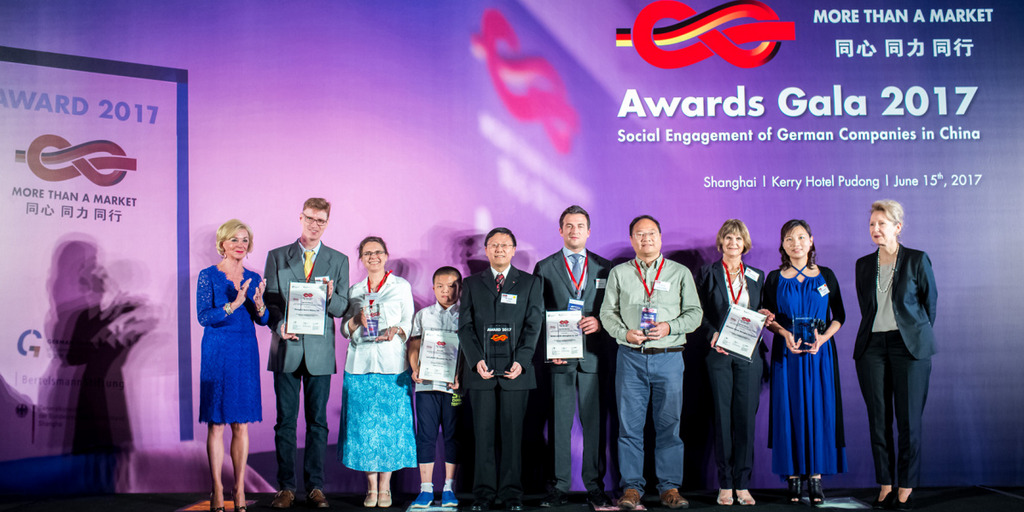China is Germany's most important trading partner. The roughly 80 companies that applied for the award this year, employ 350.000 people in the Asian country. This is close to a third of all jobs German companies have created in China. The German and Chinese economy are by now intertwined, even beyond production processes, supply chains and sales structures. "Responsible entrepreneurship can and should make an effective contribution to shaping social progress", Liz Mohn, vice-chairwoman of the Bertelsmann Stiftung Executive Board, emphasized. China and Germany are much more than just a market for each other, Mohn said.
The projects receiving the awards were initiatives introduced by large companies, but also by small and medium enterprises. Software company SAP was honored for building a platform for volunteers. Its employees now support Chinese nongovernmental organizations or try to increase the elderly's participation in digitalisation. Chemical company Lanxess is concerned with the urgent problem of water pollution in China. It introduced a research competition designed to improve students' engineering capabilities. Small packaging specialist Rose Plastic offers English classes for kids in Guizhou, a Chinese province with a low social level.
Bosch, Freudenberg and Wacker also received an award. All three built long-term cooperation with schools, starting with establishing the school and then moving to a long-term, sustainable partnership. Moreover, the "Kids Footbal Project" allowing children of migrant workers to get physical education, a cooperation project by multiple German companies, was awarded.
The More than a Market brochure provides you an overview of the areas in which German companies are getting involved in China. It also profiles the initiatives launched by the prizewinners and finalists (in English and Chinese):




